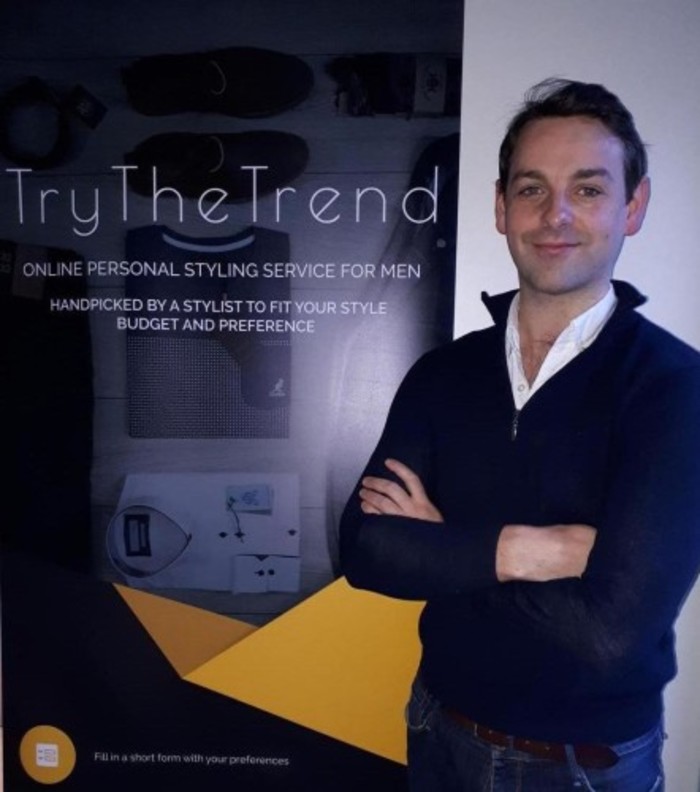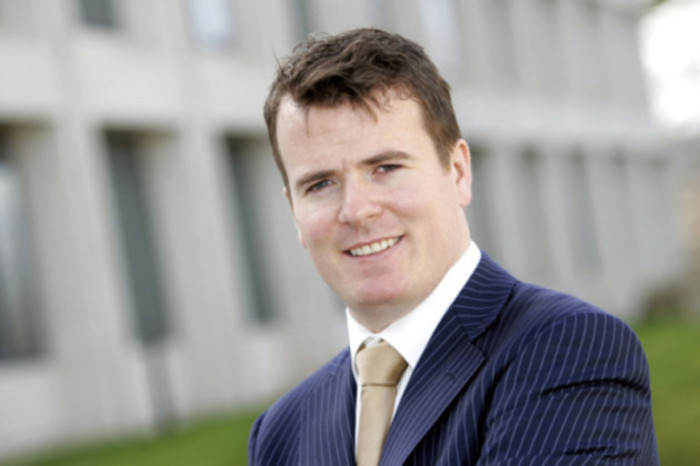This Dún Laoghaire startup wants to be everyone's personal stylist
As part of our weekly Startup Spotlight series, we profile Try The Trend.
THE CONCEPT OF robots and artificial intelligence taking peoples’ jobs might seem like a problem for the next generation, but it’s something that’s very much on Niall Kelly’s mind.
Kelly is the co-founder of the fashion startup Try The Trend – an e-commerce service that aims to give all of its users a personal stylist.
It’s not a crowded space at the moment, say Kelly, with only a handful of firms in the UK trying similar models.
But Kelly’s not too worried about any immediate rivals – it’s big tech-backed AI that he’s watching most closely.
“On the horizon, I suppose the big competitor anyone operating this space would be looking at is Amazon,” he says.
“Just look at Amazon Prime and the services where its artificial intelligence can tell you what to wear and what to buy. That’s very much something in the future we have to be aware of.”
However, Kelly believes that consumers will always want to retain a certain human touch when it comes to style advice.
Try The Trend has a team of four stylists that its users can get fashion advice from via the e-commerce platform, which sells mostly men’s clothing it buys in from wholesalers. The firm makes its money from a cut of each sale it processes.
 Niall Kelly
Niall Kelly
Based on a profile developed by the user and a conversation with a stylist, Try The Trend packages up a collection of clothing from buyers using its brands, which include Remus Uomo, Tommy Hilfiger and Nike.
“There is a bit of time involved in that process. Obviously there is the time they have talking, then the stylist picks the clothing and puts together the products that are sent out.
“Also there is the follow-up with the customer to get feedback on what they liked or didn’t like so we can update the profile of the customer. This means next time they order it will be more to their tastes. So the human element costs money.”
According to Kelly, the style-advice process is the most costly aspect of what has been a pretty lean operation so far.
“Our terms with our suppliers means we can minimise the cost. We don’t have to hold stock on hand, we can order as we need to supply our customers.
“If products come back, we have agreements with most suppliers that if clothing isn’t kept by the customer, we can either use them for further orders or at the end of the month we can return products and get credit. That’s how we keep our costs low.”
Get to market
Keeping the startup as low-cost as possible is the reason the business has got as far as it has since being set up last year, according to Kelly.
He says the company’s initial strategy was to get to market as quickly as it could with a working product.
“We didn’t want to spend an eternity on it when we knew, in all reality, the first version of the site we created wouldn’t be what we would go forward with in the future. It would never be the finished product.
“If you don’t launch, you will start spending a lot of money on tech and development based on assumptions without real feedback. The problem with assumptions is they are often wrong. So you need to get that real-life feedback from customers and that can only be done by generating sales and registrations.”
The prototype Kelly’s team developed was called SalesPrey, which he admits wasn’t perfect – although it did the job in attracting a backer.
“It meant we could realistically look for funding rather than just go to investors with what they usually get, which is people coming in with grandiose ideas but not grounded in any reality.
“We had a reference point, a physical platform and could show sales coming through the business. With evidence like that, we were able to say if we got investment, we could create something really good.”
Raising
The early prototype helped the startup catch the eye of Ian Lucey, whose startup fund has backed the company to the tune of €100,000.
Since then, the firm has moved its staff of four into the Harbour Innovation Campus – a new multimillion-euro ‘innovation hub’ in the old Dún Laoghaire ferry terminal.
 Investor Ian Lucey
Investor Ian Lucey
Lucey’s six-figure sum coupled with an Enterprise Ireland innovation voucher and the funds Kelly and his brother and co-founder Ross have put into the business brings total investment in the firm up to nearly €200,000.
Kelly says a lot of this funding has been spent on marketing and the firm is eyeing up another €100,000 round of investment to spend on more advertising – and to bankroll some tweaks to the system.
He says the business is also in talks about getting some more funding from private equity investors.
“We have a certain amount of runway and we’re confident we will have the next round secured before that runway runs out. We have at least seven to eight months.
“We are generating a lot of sales and because we’re not paying for stock unless we sell it, we’re not tying up a lot of money in cash. So we’re covering our base costs with our sales, which means any investment allows us to grow the business.”





